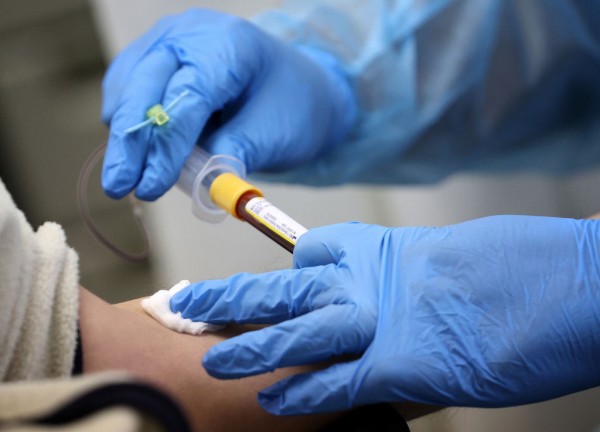Is There a Link Between Your Blood Type and COVID-19? Here’s What the Experts Say

Serology tests are intended for persons who are not currently experiencing signs and symptoms of COVID-19 but want to know if they were previously exposed to the virus.
The New England Journal of Medicine recently published a study that found associations between COVID-19 and certain genetic and blood variables.
While the study authors emphasize the potential effectiveness of these "gene-related" results, which connected clusters of genes on a particular chromosome in severe cases of COVID-19, the majority of the attention of media focused on the blood-type results.
Among the over 1,500 Spanish and Italian COVID-19 patients included in the study, contagion seemed less typical among individuals with blood type O. Meanwhile, the infection seemed to be more typical among individuals with blood type A.
The blood-typing results of the study closely reflected the findings of earlier research from China, which found too, a higher risk of infection among those with blood Type A, and a lower risk among people whose blood type is O.
ALSO READ: Solved! Link Between Stress and Inflammation No Longer a Mystery
Blood Type Also Linked to SARS
The new study's co-author, Tom Karisen, MD, Ph.D. Said, currently, several research studies confirm the link, which is seen as well, for SARS. Karisen is also an internal medicine professor at the University of Oslo in Norway.
COVID-19 and SARS stanch from transmissible connected coronaviruses. As a result, according to medical experts, it makes sense that if a specific blood type is associated with "lower risk for one of these contagions," it is likely to lessen the risk of an individual for others, as well.
In addition, there are numerous well-established connections between infectious diseases and blood type; for instance, the study indicated, "Type O blood is protective against malaria." However, it is linked to more severe cholera cases.
The new findings for COVID-19 indeed yielded some relief in individuals with type O blood, and dread with people whose blood type is A.
Nevertheless, experts who have looked at the study claimed that the results seemed doubtful-and might eventually prove to be either confusing or inexact.
DON'T MISS THIS: COVID-19+Cancer Combo, Now the Latest Fear
Getting Blood Typed Not Necessary
University of Michigan professor and associate director of transfusion medicine, Laura Cooling, MD said, she keeps on receiving emails from people who are asking if they need to have their blood typed. She answers them, "Definitely not!"
This expert in the medical field also claimed that numerous US researchers, which include herself, have been taking note of the blood-group data" from the first few days of the pandemic.
As a result, she said, they have not found meaningful associations adding, she does not think "it is going to pan out." Cooling also said she believes that the blood group's contribution to a person's risk will be insignificant "compared to the underlying heart ailment, obesity or hypertension," or other factors that have been determined.
Similarly, pathologist Walter Dzik, MD, from Massachusetts General Hospital, said, he thinks the seeming links are not right and are based on methodology error." This pathologist, who has studied COVID-19's association with ABO blood types claimed, he has not found a connection.
Is One's Blood Type Associated with any Contagion Risk?
Since the start of the pandemic, the link between blood groups and COVID-19 or any other infectious disease has been the center of discussions and arguments.
In relation to this, Washington University School of Medicine professor James Fleckenstein, MD, said, possibly, "people with different blood groups support different immune reactions to pathogens like this killer disease."
On the other hand, he explained, "blood groups can be 'receptors' for pathogens or their produced proteins. Other potential explanations are underway."
Some studies have associated COVID-19 to abnormal clotting of blood, while several blood-group antigens can impact the manner of thickening of the blood.
IN CASE YOU MISSED THIS: More Americans Need to Use N95 Masks to Slow the Spread of COVID-19, ICU Specialists Say
Jul 03, 2020 09:20 AM EDT





